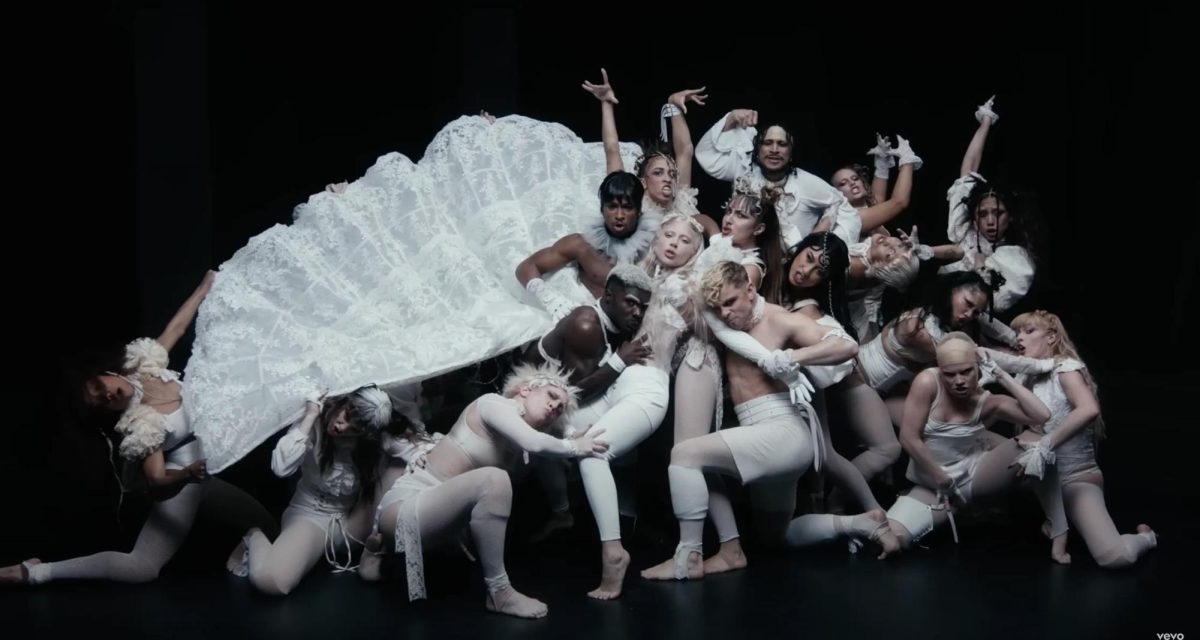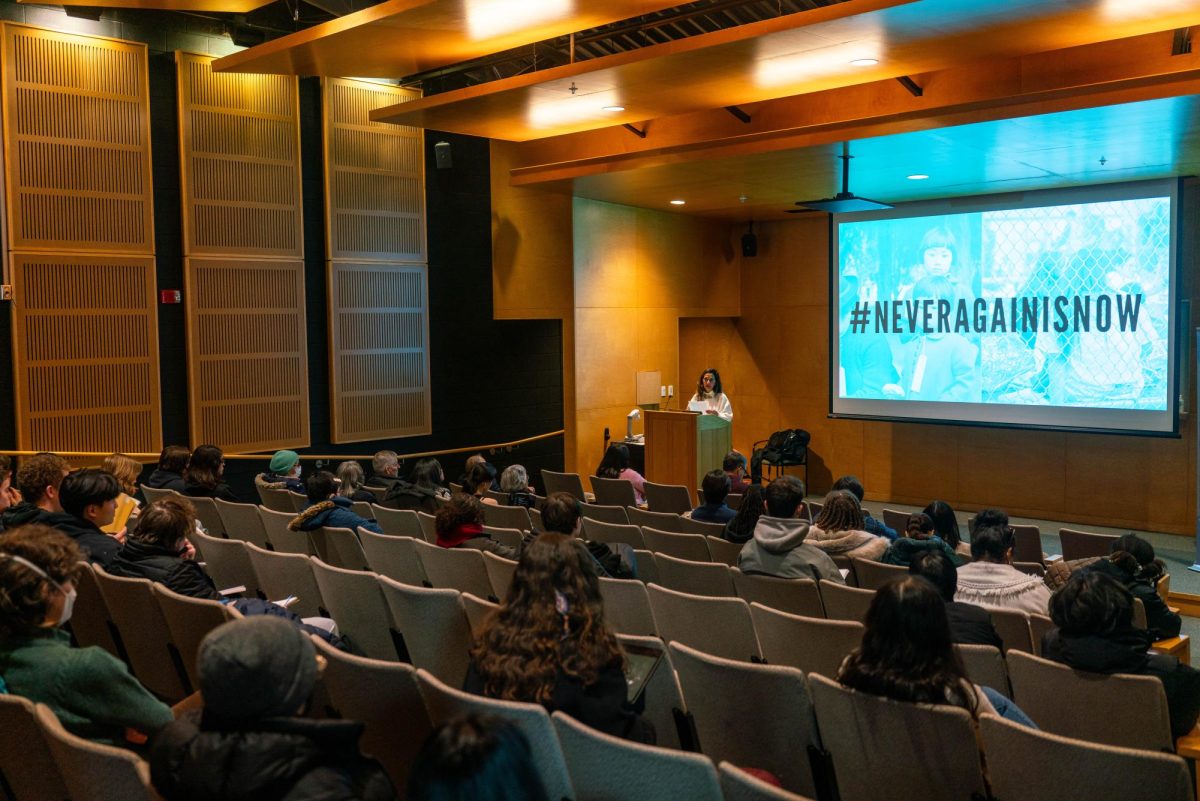Shapiro’s Speaker Series Funds Gold(en Mean) Diggers
September 28, 2012
Last week’s Letter to the Editors from hedge fund manager and College Trustee Steven Shapiro, OC ’83, was illuminating for several reasons. From a dialectical standpoint, it’s valuable for public discussion of the Ronald Reagan Political Lectureship Series to include the perspective of its benefactor, letting Obies see the series as more than just a mysteriously out-of-place “wingnut welfare” program. But his stated reasons for funding speakers like Karl Rove, John Bolton and most recently Bill Whittle — Oberlin’s “staggeringly homogenous political environment,” our “overwhelmingly liberal intellectual bias” and so forth — hint at some deep problems with political discourse in both Oberlin and the United States of America that are worth exploring in greater detail.
Of course, to most Obies this campus’ progressive consensus is anything but a problem. We ivory-tower eggheads understand that popular support for an ideology, like many Americans’ affinity for Fox News-style conservatism, doesn’t necessarily warrant it serious consideration: Just ask biology majors about the heated controversy over intelligent design, or ask pre-med students to conduct in-depth studies of homeopathy. If Shapiro and the outspoken Oberlin College Republicans and Libertarians would prefer to reject such comparisons, they should remove fallacious arguments that work just as well for creationists or alternative medicine advocates from their rhetorical toolbox.
The fallacies on display in Shapiro’s letter included argumentum ad populum (appeal to popularity) and the Golden Mean Fallacy, which maintains that truth is inherently likely to lie close to the midpoint between two prominent opposing views — or, as the letter put it, that “None of us have all the answers and no one party has a monopoly on truth.” Americans’ susceptibility to such clichés has dragged our discourse further and further rightward over the past several decades, as Republicans have adopted ever more extreme positions on social and economic issues and the Golden Mean-seeking centrist establishment has repeatedly reoriented itself to keep up. As a result, policies like the individual health insurance mandate (which, as bears near-endless repeating, was created and advanced by arch-conservative Republicans as recently as a few years ago) are now presented as irredeemably socialist left-wing tyranny even by relatively sober conservatives like the OCRL.
The extreme conservatism of U.S. politics is laid bare by a metric called the Political Compass, a two-dimensional grid with a y axis representing social authoritarianism/libertarianism while the x axis represents economic collectivism/individualism, designed by British researchers and easily accessible at politicalcompass.org. Figures from international political history fall all over the grid, from Pierre-Joseph Proudhon in the lower left-hand quadrant to Hugo Chávez in the upper left to Friedrich Hayek in the lower right — but influential Republicans and Democrats alike are largely clustered closer to Augusto Pinochet in the upper right-hand quadrant, with barely any perceivable distance even between the policies of Mitt Romney and Barack Obama. By such a standard, the mainstream currents of political thought at Oberlin (from socialism and anarchism to liberalism and anarcho-capitalism) comprise a wider range of political diversity than a staggeringly homogenous U.S. presidential debate ever could.
But to give Shapiro his due, whatever issues we have with the present neoliberal/authoritarian consensus in Washington still don’t justify isolating ourselves from even those prominent viewpoints we deem misguided or crazy. Scorn for a popular ideology often goes hand in glove with disdain for its believers, and no understanding of society can be complete without an in-depth knowledge of its major groups in all their ideological variety. Right-wing commentator Julian Sanchez recently dredged up the term “epistemic closure” to describe this phenomenon among movement conservatives, a term that could apply just as easily to a crowd of perplexed Obies gathering to witness the occasional appearance of an evangelical street preacher.
The prescription for Oberlin, then, is clear. As Max Zahn, OC ’12, and Jake Streich-Kest wrote in response to Bolton’s Reagan Series lecture [“Student Activism Lacks Cohesion, Unity,” The Oberlin Review, April 6, 2012]: “The most distressing thing … was the applause” from the largely non-Obie crowd at moments like his defense of Qur’an desecration by U.S. soldiers in Afghanistan. We can access the boilerplate rhetoric of speakers like Rove and Bolton any time by turning on Fox News or reading theNational Review, but many of us from places like Manhattan and San Francisco desperately need more exposure to the sorts of people who vociferously cheer for intolerance (the way a crowd like Bolton’s might have applauded Rove for disparaging the ethics of gays and atheists) and use racial and gender-based slurs in their everyday speech — or even, for the love of Gautama, more exposure to a small fraction of the people who live farther than a few blocks from Oberlin College in any direction.
And ruling-class conservatives like Shapiro would be well-advised to take a parallel step forward, exposing themselves not just to Fox News personalities and Republican politicians but to mainstream Fox News viewers and Republican base voters. I suspect that if they interacted more with typical consumers of the repugnant views they and their speakers espouse, they wouldn’t particularly like what they’d find.

















